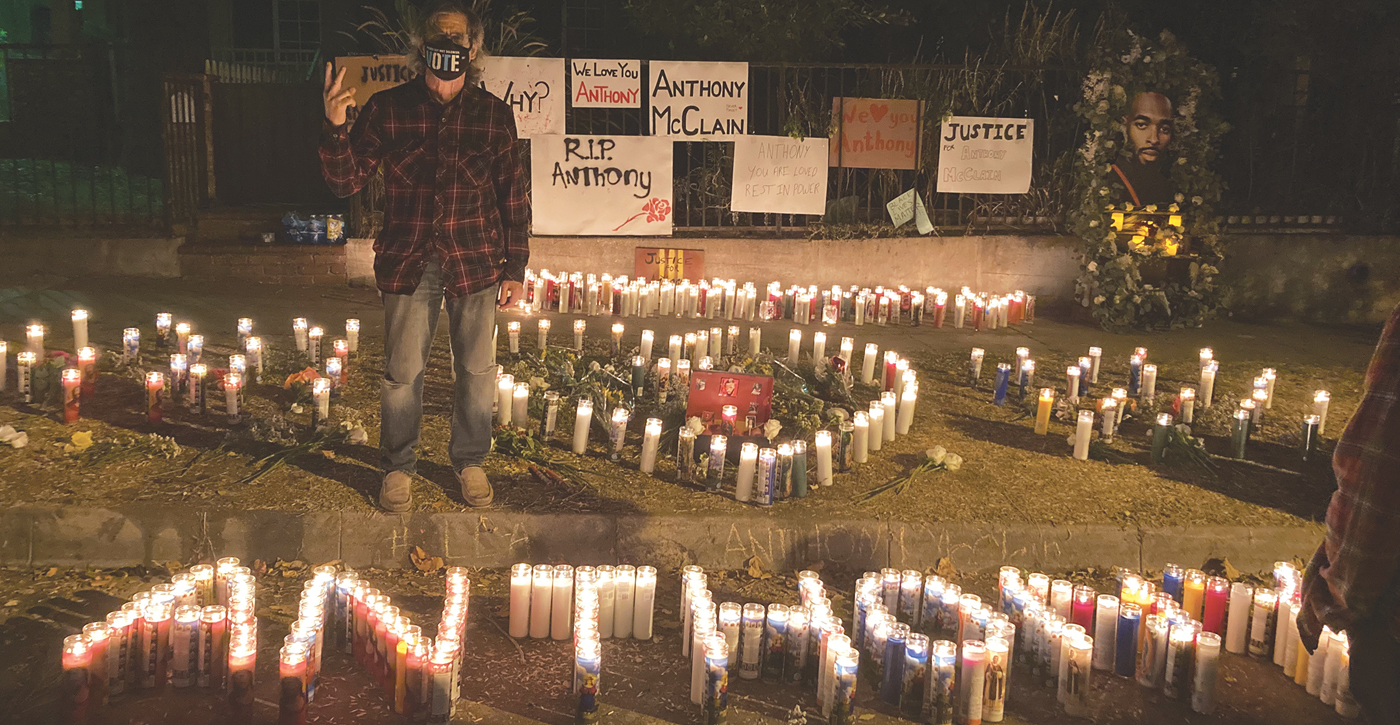A few weeks ago, I was walking home with my five-year-old son, Thomas, after school. Our path took us through Philadelphia’s central square, known colloquially as Love Park, after the famous Robert Indiana sculpture. It was shortly after sunset. Lights twinkled in bare city trees. In the courtyard of City Hall, a Christmas tree was being trimmed. And police officers were out in force, diverting car traffic from the city center with roadblocks and standing around in small, wary groups. A few hours earlier, a grand jury had decided not to indict Daniel Pantaleo, a white New York City police officer, for killing Eric Garner, an unarmed black man, with a brutal and videotaped chokehold. The police in the City of Brotherly Love were massing to prepare for the possibility of protests. Indeed hundreds if not thousands of men and women would arrive later that evening, to peacefully demand justice, just as they did in cities and towns throughout the country and even around the world.
My son quite reasonably wanted to know what was going on. I’ve had too many of these moments lately, having to explain the terrible things that happen when we don’t respect the people with whom we share this earth. Thomas and I talked about how every life matters, and I explained that people are really mad because our system of justice isn’t working. The system shouldn’t ever say that killing someone is okay, even if the victim is a black man and it was a police officer that killed him. We can’t fix the system unless everyone who knows it’s broken says so and demands change.
I see so many of my friends—Quaker and non-Quaker alike—stepping out of their comfort zones to demand change, and it is heartening. My son is a witness not only to a broken world, but also to the people trying to fix it. There is a great moral convergence afoot, as more and more of us come to agree, vocally, about the sanctity of black lives. Similarly, an agreement is crystallizing around the enormity of the challenge that a changing climate presents for us as inhabitants of Earth. In this issue, we are pleased to share some of the many ways that Friends are led to approach these challenges as extensions of their Quaker faith.
Welcoming Friends Journal’s New Poetry Editor
I hope you’ll join us in welcoming to the Friends Journal masthead our new poetry editor, Rosemary Zimmermann. Rosemary writes, “I love poetry because it communicates to me more perfectly than any other medium. In a few words, poetry can hand me an insight that prose would take pages to give me—or might be incapable of conveying at all. As a reader of poetry, I look for poems that show me something new, that invite me into the writer’s world, and that twist my neck around until I can see the world from a new angle.”
Rosemary, a convinced Friend and member of South Starksboro (Vt.) Meeting, is a nurse practitioner by day. She lives in South Burlington, Vt., with her husband and young son. She also edits poetry for Mud Season Review.
2015 marks Friends Journal’s sixtieth birthday. Thank you for your readership and support in this landmark year.





Comments on Friendsjournal.org may be used in the Forum of the print magazine and may be edited for length and clarity.